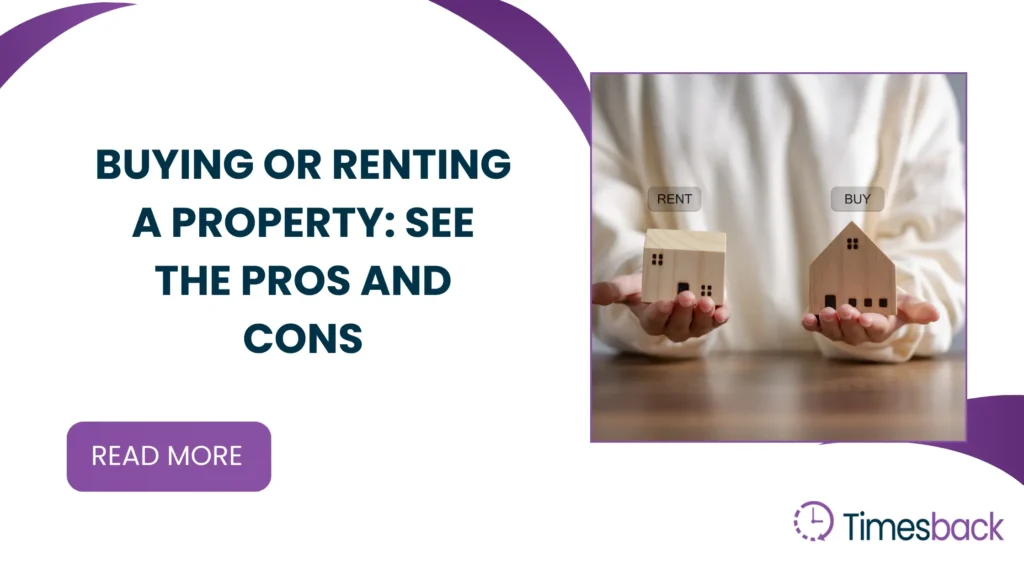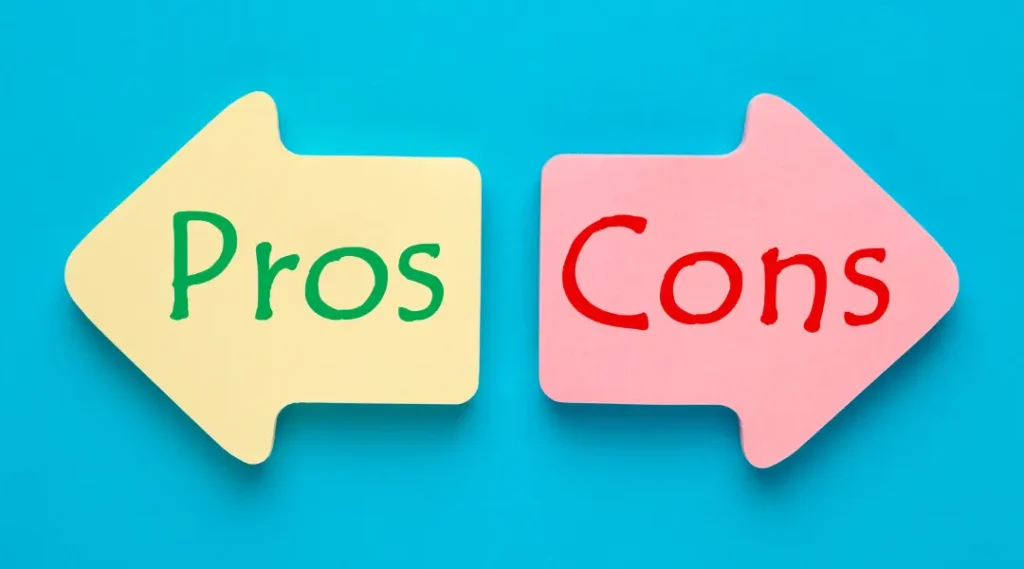Buying or Renting a Property: See the Pros and Cons

Choosing between buying or renting a property is one of the most significant financial decisions one can make.
Anúncios
Both options offer distinct advantages and disadvantages, which vary depending on factors such as financial profile, lifestyle, and future plans.
This comprehensive guide will delve into the key elements that should be considered when making this decision, providing a technical yet accessible analysis.
We will examine the costs, financial stability, long-term goals, and the critical role of location, all supported by updated data and insights to help you determine the best option for your unique circumstances.
The Financial Implications: Weighing the Cost of Living
Anúncios
One of the most immediate considerations when deciding between renting or buying a property is the cost of living.
Renting typically requires a smaller initial outlay compared to buying, as purchasing a home often involves a significant down payment along with closing costs.
According to recent data from Zillow, the average down payment in the United States is around 20% of the property’s value, which can be a considerable hurdle for many prospective buyers.
Additionally, closing costs can add another 2% to 5% to the overall expense, further increasing the financial burden.
Renting, on the other hand, provides more financial flexibility. The initial costs are usually limited to a security deposit and possibly a few months' rent upfront.
This lower financial commitment allows renters to save or invest the difference between their rent and what they would otherwise spend on a mortgage.
However, while renting offers short-term affordability, it does not contribute to long-term wealth building.
Unlike buying, where mortgage payments contribute to equity in the property, rental payments do not result in ownership.
Moreover, the long-term financial implications of buying versus renting depend heavily on the real estate market in your area.
In regions where property values are consistently appreciating, buying can be a strategic financial move.
For instance, in cities like San Francisco and New York, where property prices have seen substantial increases over the years, homeowners have benefited from significant equity gains.
In contrast, in areas with stagnant or declining property values, renting might be the more prudent financial decision, as it avoids the risks associated with a depreciating asset.
+ Countries where the dollar is worth a lot: discover options!
Building Financial Stability and Equity

When considering the stability that comes with buying or renting a property, it's essential to understand the long-term financial benefits of homeownership.
One of the primary advantages of buying a property is the opportunity to build equity. Each mortgage payment contributes to owning a more significant portion of your home, effectively acting as a forced savings plan.
This equity can serve as a financial safety net, providing leverage for future investments or acting as a source of capital in retirement.
However, homeownership comes with its set of responsibilities and expenses that can strain finances. Beyond the mortgage, homeowners must account for property taxes, homeowner’s insurance, and ongoing maintenance.
According to the Harvard Joint Center for Housing Studies, annual maintenance costs for homeowners typically range from 1% to 3% of the property's value.
These costs, while building equity, also represent a significant long-term financial commitment that renters do not have to bear.
Renting, in contrast, allows for greater financial predictability and less responsibility. Renters are not burdened with the costs of property maintenance, repairs, or unexpected expenses like roof replacements or plumbing issues.
This financial predictability can be particularly advantageous for those who prefer a flexible lifestyle or those who are uncertain about their long-term plans.
However, the trade-off is that renting does not provide the same opportunity to build wealth through property appreciation.
Future Plans and Lifestyle Considerations

Another crucial aspect in the decision-making process is how your future plans and lifestyle align with buying or renting a property.
If you anticipate significant changes in your life, such as relocating for work, starting a family, or traveling frequently, renting might be the more suitable option.
Renting offers the flexibility to move without the constraints of selling a property, which can be time-consuming and costly.
This freedom is particularly valuable in today's fast-paced and often unpredictable world, where job relocations and lifestyle changes are common.
On the other hand, if you are seeking stability and a place to establish long-term roots, buying a property may be more appropriate.
Homeownership can provide a sense of permanence and community involvement, particularly for families looking to settle in a specific neighborhood or school district.
The commitment to a mortgage can also instill a level of financial discipline, encouraging long-term savings and investment in your home and community.
Moreover, the decision to buy or rent should also consider the emotional and psychological aspects. As economist Robert Shiller noted, "Buying a home is as much an emotional decision as it is a financial one, and both dimensions must be carefully weighed."
The sense of security and pride that comes with owning a home can be a significant factor for many people, providing a tangible connection to their investment and a sense of personal accomplishment.
+ Real Estate Investing for Beginners: Everything You Need to Know
The Critical Role of Location
Location is often the most critical factor in determining whether buying a property is worth it. The real estate market varies widely across the United States, and understanding the local market conditions is essential.
In areas where property values are on the rise, purchasing a home can be a sound investment.
For example, in thriving metropolitan areas like Seattle or Austin, where economic growth and job opportunities are driving demand, buying a property could lead to significant appreciation over time.
However, in markets that are either saturated or have limited growth potential, the benefits of homeownership may be less pronounced.
In such cases, renting might be a more advantageous option, allowing you to live in desirable areas without the financial risk associated with declining property values.
A thorough analysis of market trends, economic forecasts, and local real estate conditions should guide your decision.
Furthermore, the decision between renting or buying a property should also consider personal and lifestyle preferences regarding location.
If living in a dynamic urban environment with access to amenities, culture, and entertainment is a priority, renting might offer more flexibility to live in areas that might be otherwise unaffordable to purchase in.
Conversely, if a quieter suburban or rural lifestyle is preferred, buying a property could provide the space and long-term stability that renting in these areas might not offer.
Conclusion: Making the Informed Choice
Ultimately, the decision between buying or renting a property is highly personal and depends on a careful assessment of various factors, including financial implications, future plans, lifestyle, and location.
While buying a property offers the potential for building equity, long-term financial stability, and emotional satisfaction, it also requires significant financial commitment and responsibility.
On the other hand, renting provides flexibility, lower upfront costs, and freedom from the obligations of property ownership, but it does not offer the same opportunity for wealth building.
For those seeking flexibility and lower financial commitment, renting might be the best choice. However, for individuals ready to invest in their future, with a stable financial foundation and long-term goals, buying a property can be a rewarding decision.
The key to making the right choice lies in understanding your unique circumstances and aligning them with the advantages and challenges of each option.
By considering all aspects — financial, emotional, and practical — you can make a well-informed decision that best suits your needs and aspirations.
